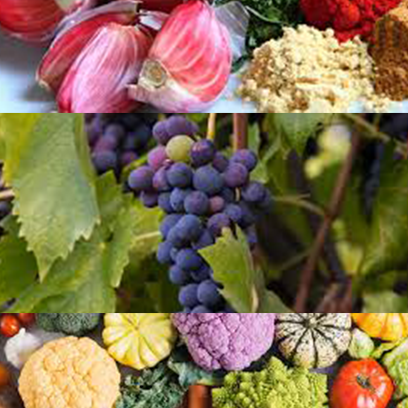QUERCETIN
Quercetin is a flavonoid belonging to the group of flavonols, which are found in many vegetables such as hawthorn, calendula, horse chestnut, St. John’s wort, and ginkgo biloba. Quercetin is also present in varying percentages in some common foods: red grapes and red wine, blueberries, apples, celery, radicchio, red onions, green tea, and capers. Quercetin is known to inhibit the action of several intracellular enzymes involved in cell proliferation and inflammation. Because of these characteristics, it has been studied by experimental oncologists, looking into the mechanisms responsible for cell proliferation and its antagonists. An international study, in which the Italian National Research Council also took part, demonstrated the ability of quercetin to inhibit the SARS-Cov2 virus (Covid-19) (International Journal of Biological Macromolecules volume 164, 1 December 2020, pages 1693 – 1703). Quercetin is a natural antioxidant that counteracts free radicals and exerts an anti-inflammatory action. Several experiments carried out in vitro, in animals, and on human blood, by researchers at the University of Florida, have demonstrated that bioflavonoids, particularly some of those in citrus fruits, are effective natural agents against thrombosis. Bioflavonoids, especially blueberry anthocyanosides, are also effective against vision disorders: they can improve twilight vision and reduce glare. They are therefore valuable in counteracting retinal disorders of hypertensive and diabetic origin, and in developmental myopia.
Used in: Pinelli Macula Project ® PLUS
READ SCIENTIFIC PUBLICATIONS ON QUERCETINA
- Quercetin and cyanidin-3-glucoside protect against photooxidation and photodegradation of A2E in retinal pigment epithelia
- Quercetin and the ocular surface What we know and where we are going
- The Pharmacological Activity, Biochemical Properties, and Pharmacokinetics of the Major Natural Polyphenolic Flavonoid
- The Protective Effect of Quercetin against Oxidative Stress in the Human RPE In Vitro
- Therapeutic Potential of Quercetin New Insights and Perspectives for Human Health
- A Nutraceutical Strategy to Slowing Down the Progression of Cone Death in an Animal Model of Retinitis Pigmentosa
- Dietary Polyphenols in Age-Related Macular Degeneration
- Effect of Quercetin on Formation of Choroidal Neovascularization CNV in Age-related Macular Degeneration AMD
- New lipophenols prevent carbonyl and oxidative stresses involved in macular degeneration
- Protective effects of flavonoids in acute models of light-induced retinal degeneration

